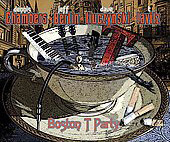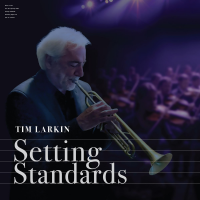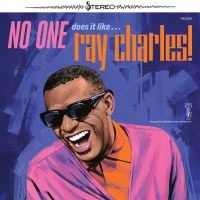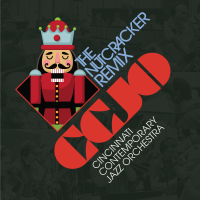Home » Jazz Articles » Album Review » Peter Paulsen Trio: Tri-Cycle
Peter Paulsen Trio: Tri-Cycle
Still, many of these artists are anything but common. As much a revelation as Baumeister's talent was, the potential of his entire quartet was equally astonishing. It's possible that everyone could be a leader in his own right, and with Tri-Cycle, Baumeister's bassist, Peter Paulsen, proves just that. Like Useful Music, this piano trio record is as rooted in contemporary classicism as it is the jazz tradition, providng evidence that Philadelphia has an improvised music scene that's every bit as distinctive and adventurous as the ones in Chicago, New York and Los Angeles.
Unlike Useful Music, which was almost all written by Baumeister, Tri-Cycle is a mix of Paulsen compositions and arrangements of material by Antonio Carlos Jobim, Matt Hochmiller and Bill Evans. But Paulsen's arrangements take that material quite far, massaging it into a personal aesthetic so completely that while the familiar themes are there, the music feels one of a kind with the original compositions—as if they'd all come from the same pen.
Paulsen's background includes a solid grounding in classical music, which comes as no surprise. His arco solo on the extended rubato intro to Hochmiller's "Motion might feel more at home in a classical recital. But Paulsen's improvisational acumen on this initially brooding piece belies a more spontaneous mindset. When the piece transitions into an elastic, yet delicately swinging middle section, where pianist Wells Hanley tills turf blending the economy of Evans with the more outward reaching harmonic ideas of Paul Bley, there's a palpable emotional shift, before Paulsen brings his bow back and gradually returns the by-now optimistic ambience to its more sombre conclusion.
Paulsen's own writing ranges from the more abstract and free-style impressionism of the slowly unfolding "Tre Formaggi —where drummer Joe Mullen's colorations suggest a pulses in a less direct, Motian-like fashion—to the greater insistence of "What If, with its staggered theme, and a schizophrenic title track that shifts from Nordic cool to thematic ellipsis and occasional swing in a very ECM-like way.
In fact, a very European aesthetic informs Paulsen's music, which explains his obvious simpatico with Baumeister. But with Tri-Cycle, Paulsen proves himself to be every bit as capable as a leader. And, with Hanley and Mullen, Paulsen reveals a stylistic specificity that's evolving on the Philly scene which can rival that in any other major center.
Track Listing
Wren-owned Lady; Tri-Cycle; Darktime; Twelve Tone Tune; Motion; Tre Formaggi; Luisa; What If....
Personnel
Peter Paulsen
bass, acousticPeter Paulsen: bass; Wells Hanley: piano; Joe Mullen: drums.
Album information
Title: Tri-Cycle | Year Released: 2006 | Record Label: Wahbo Records
Tags
PREVIOUS / NEXT
Support All About Jazz
 All About Jazz has been a pillar of jazz since 1995, championing it as an art form and, more importantly, supporting the musicians who make it. Our enduring commitment has made "AAJ" one of the most culturally important websites of its kind, read by hundreds of thousands of fans, musicians and industry figures every month.
All About Jazz has been a pillar of jazz since 1995, championing it as an art form and, more importantly, supporting the musicians who make it. Our enduring commitment has made "AAJ" one of the most culturally important websites of its kind, read by hundreds of thousands of fans, musicians and industry figures every month.

























